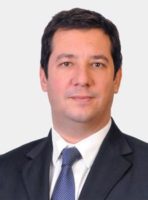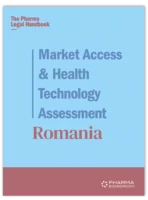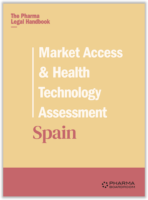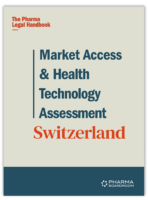Politics and Pharma M&A in Argentina 2022
/ Argentina
The COVID-19 pandemic has caused economic and social disruption and has affected the behavior of both consumers and producers in Argentina, with an important impact on Argentine currency (ARS) devaluation and inflation, among others. We are not yet able to measure the real impact of the uncertainty the world is currently facing, and its impact on the country.
In December 2019, the National Government implemented agreements with key sectors, such as that with the local pharma association, and enacted emergency legislation such as Law No. 27,541, which declared, prior to the pandemic, a public state of emergency in economic, financial, fiscal, administrative, pension, tariff, energy, health, and social matters. Despite the public state of emergency in sanitary and health matters was extended up to December 31st, 2022 (Decree No. 260/20, Decree No.867/21, and complementary regulation), several players in the pharma industry have successfully adapted, thrived and prospered under the current scenario.
Although emergency measures tightened once the lockdown was ordered in 2020, the current government implemented a set of policies including price controls, significant capital transfers from the public sector to individuals and certain companies, foreign exchange restrictions , and tax increases. Some government actions affecting the pharmaceutical industry have included setting maximum prices for certain innovative drugs which is unprecedented. As from 2022, the Ministry of Health issues a monthly reference price list of certain medicines to establish the amount that healthcare insurance providers should cover.
With regards to M&A activity, the pharmaceutical industry has managed to thrive in Argentina during the current crisis, with some relevant deals that took place, even, during the full lockdown, and others ongoing projects. Big global pharmaceutical companies are facing the re-structure of their mature and/or OTC portfolios in the LatAm region during this time, which has had interesting results for the local pharma industry in terms of regionally expanding their business portfolio. Other global pharma companies are restructuring their business model oriented to having a local footprint in the country.
According to the Industrial Production Index, measured by the Argentine Institute of Statistics and Censuses (INDEC, after its acronym in Spanish), pharmaceutical products registered a year-on-year increase of 8.5 percent in the reference month (December 2021). As from 2021, the domestic demand of medicines and healthcare has increased thanks to the private and public sector. In fact, lockdown and strict restrictions on people’s mobility in 2020 postponed hospital care for non-COVID-19 illnesses (e.g., routine visits, screening, scheduled medical procedures, etc.) and also reduced the incidence of common winter illnesses. Consequently in 2021, the demand and prescription for various medicines increased as the government loosened restrictions. What is more, the National Government has centralized the purchase of vaccines against COVID-19, and has recently fostered pharmaceutical public tenders, including those awarded under the “Remediar” program, among others.
Moreover, new opportunities are developing in areas such as clinical trials, gene therapy, medicinal cannabis, and telemedicine, due to recent changes in regulations. For instance, in January 2021, the Argentine Executive Branch finally implemented Law No. 27,506, which provides for a promotional tax regime for innovative companies related to the biotechnology, neurotechnology and genetic engineering, nanotechnology, and nanoscience industries. In this context, several provinces have adhered to this regime and have also implemented for these sectors a differentiated tax regime for provincial taxes. Consequently, foreign investments over US$ 300 million dollars are expected for the upcoming years in the country (mostly on clinical research).
Further investments are also expected as result of the new regulatory framework for the development of medicinal cannabis and industrial hemp. The regulation would develop not only the different segments of the medicinal cannabis chain (cultivation, harvesting, processing, marketing, etc.) but also the use of hemp in the textile, footwear, cosmetics, food, wood, and car industries, among others.
Foreign exchange regulations are constantly changing in Argentina, so it is of outmost importance to obtain adequate advise for an expert to properly design the best operating model for the entity in Argentina.
Against this backdrop, while some companies are divesting (often as a result of global policies regarding their mature products and to focus product pipeline on complex drugs), others have expanded their business by switching from a third-party full distributor model to a hybrid or even to a full affiliate model, by taking advantage of the reduced costs derived from the context, basically resulting from the economic crisis due to the devaluation of the national currency and continuous high inflation. This specific local dynamic calls for innovative buyers and sellers, who need tailored and well defined legal and regulatory strategies for navigating this process in a successful manner.
Under Argentine law, the buyer is responsible for auditing the target company and assumes all liability once the transaction is closed, except for usual indemnification based on representations and warranties granted by the seller. In addition, during the past few months, certain practices implemented by unions have also had an impact on transactions requiring the parties to discuss risk allocation based on potential actions that might be implemented by unions in the context of the deal. Hence, the ability of specialists to forecast future scenarios is of utmost importance, and due diligence processes must be conducted without losing sight of political and economic factors, as well as the legislative and regulatory activity relevant to foreign investments, the target, and merger control system. Additionally, the same skills are required if we refer to US-based SPAs (often used for agreements celebrated in Argentina), since this pandemic has evidenced how difficult it is for standard clauses (i.e., material adverse change and earn-out clauses) to overcome uncertainty and solve different issues such as large distortions in the valuation of assets. In consequence, change is needed in the way we draft certain provisions like reps and warranties, material adverse change or indemnity clauses, and how we define the procedures used to assess the value of the target, or what the parties will consider as the ordinary course of business, to name a few.
In conclusion, rapid fluctuations in several economic indicators, and the frequency of contractions of the business cycle have induced some companies to pull out of the country, but that volatility has also created incentives for other companies to stay or decided to have a local footprint and even to further invest by taking advantage of the current juncture. In that sense, the expertise of the pharma specialists involved in M&A operations is crucial in terms of timing, cost, and quality of the final transaction (especially when dealing with highly regulated industries such as pharma).


































































